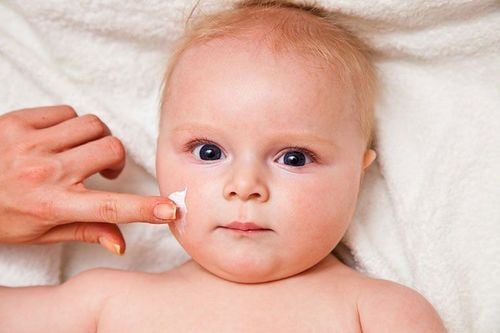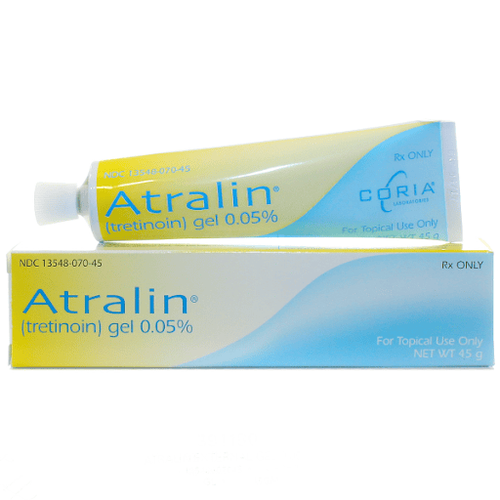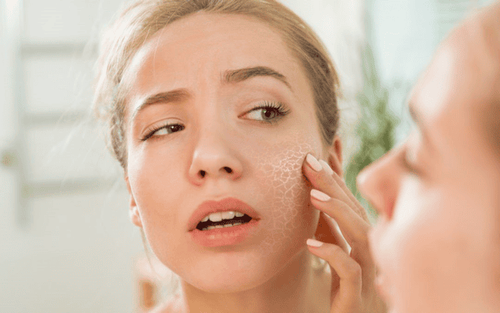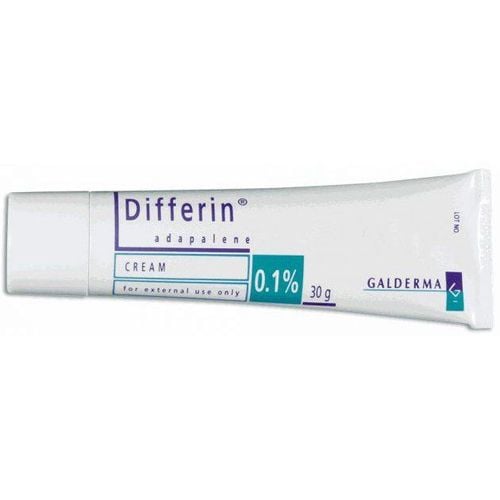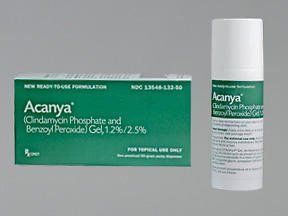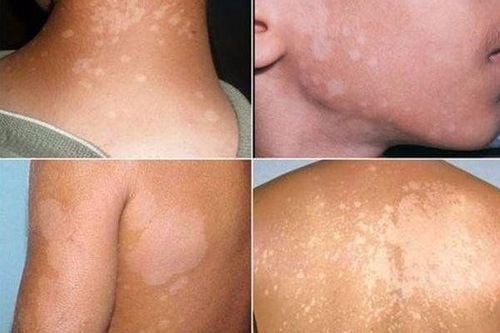This is an automatically translated article.
Oily skin is a type of skin prone to acne, because people with oily skin are often affected by genetic factors and hormone changes. Besides, dry skin can also cause acne because the environment or skin care habits irritate and clog pores. So which skin type is most prone to acne?
1. Classification of acne
Acne skin types will usually depend on the type of acne. Simple acne can be divided into inflammatory acne and non-inflammatory acne.
Non-inflammatory acne: Non-inflammatory acne refers to clogged pores and appears as blackheads or whiteheads. This type of acne is a mild condition and is easily recognized. Blackheads have a dark appearance and may appear slightly raised above the surface of the skin. Whiteheads are small pimples that are closer in color to your skin and are more hidden than blackheads. Inflammatory acne: These types of acne will often be red or irregular in color and will be classified as inflammatory acne. Papules are small red bumps, while pustules are small bumps that contain pus. In some cases papules can turn into pustules. It then grows deeper under the skin and causes pain to the patient. These bumps are usually larger than pimples and feel like they are under the skin.
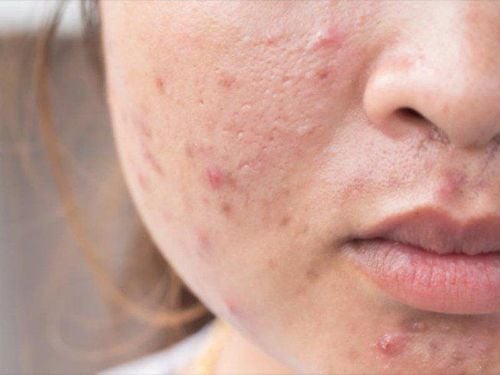
Mụn trứng cá là loại mụn không viêm với tình trạng nhẹ
2. Types of acne skin
Acne appearance depends on each skin type, accordingly, acne is quite common in oily skin. Because, oily skin has an excessive amount of sebum that is produced and clogs pores. This is the cause of the formation and development of acne, especially acne.
However, with dry skin types can still experience acne. Some of the reasons that can explain this condition are environmental factors or poor skin care habits that cause skin irritation and clog pores.
Accordingly, learning and knowing the type of skin you own will help you have a better and more effective skin care direction for acne.
Dr. Yoram Harth, a board-certified dermatologist and medical director of MD.acne says there's an easy way to make identifying skin types.
First, wash your face with a gentle infant soap and then gently pat dry. Do not apply any skin care products. A few hours later, examine the skin. If your skin is shiny, it's probably oily. If the skin appears flaky, rough, or red, it could be dry skin. Accordingly, combination skin will often appear dry on the cheeks and shiny on the forehead, nose and chin (T-zone). Meanwhile, normal skin will have healthy skin and no problem for the skin.
Therefore, not everyone with dry and oily skin can develop acne. Everyone will experience and develop acne in their lifetime, because there are many different causes and factors.
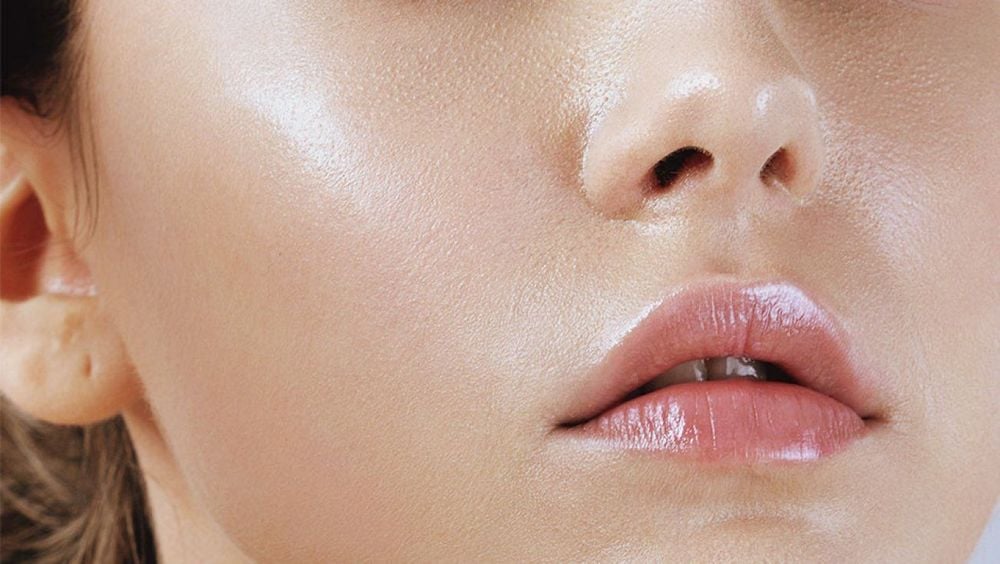
Da dầu thường xuất hiện mụn trứng cá
3. Skin care process
Without a skin care routine suitable for each skin type can cause irritation, acne and many other skin diseases. Therefore, each skin care step should be carefully considered before, especially those who have acne that has not been treated.
If necessary, consult a dermatologist about products that can be used in your skin care routine. However, you need to keep in mind that with this skin type, the lighter the product, the more effective the pores will be.
3.1. Some ingredients should be in a skin care product
Salicylic Acid is a substance that works to unclog pores and reduce inflammation. This acid is ideal for blackheads and whiteheads but can also help pustules disappear faster. Benzoyl peroxide kills acne-causing bacteria and therefore works best on inflammatory acne. Retinoids exfoliate the skin's surface, removing dead skin cells that clog pores. They also help prevent inflammation.
3.2 Skin care routine
Morning:
Cleanser: Cleansing the skin in the morning can be very good for acne skin. Toner: Use toner to remove excess oil, which is the ingredient that causes acne. Moisturizer: Whether your skin is dry or oily, your skin needs a moisturizer to help keep it hydrated. Sunscreen . Evening:
Remove makeup: If you wear makeup or use sunscreen, proper makeup removal will help unclog pores. Cleanser: Facial cleanser helps to remove dirt and impurities from the surface of the skin throughout the day. Acne Treatment: Apply after cleansing can allow active ingredients to penetrate deeper into the skin to help prevent new breakouts and clear up old ones.

Luôn sử dụng kem chống nắng là một biện pháp chắm sóc da
4. Acne Treatment
Mild acne can often be treated with over-the-counter medicinal products. However, if your acne does not improve, you should see a dermatologist to examine and choose the right treatment.
Clinical treatment options that can be applied by dermatologists for acne:
Medications: Treatment for acne can be topical antibiotics, oral antibiotics, topical retinoids ; or retinoids such as tretinoin and antibiotics, benzoyl peroxide, tetracycline. All these ingredients are ideal for cysts and nodules. Acne that is related to hormonal changes can be achieved with a prescription for combined oral contraceptives. Procedure: This procedure will be performed by a dermatologist. For example, laser methods and light therapy have the ability to kill P.acnes - the bacteria that causes some types of acne. This method is also effective for acne deep inside the skin. The key or key to acne treatment is persistence. Because acne treatment is a long process, it is expected that after 3 months of treatment, patients will feel the difference and see the treatment effects.

Thuốc kháng sinh được sử dụng trong điều trị mụn trứng cá
5. Some tips and myths in acne skin care
Acne treatment does not only involve the use of aftercare products for results. It also depends on factors including cleaning and daily lifestyle changes. Some tips and myths in acne skin care:
Wash your face twice a day and after sweating: Wash your face when you wake up and before going to bed, or after sweating a lot. However, if you wash your face a lot, it can cause skin irritation. Be gentle with your skin, avoid scrubbing or using harsh chemical exfoliants. So scrubbing vigorously or using an exfoliator can make the skin redder and more prone to irritation. Do not pick or pop a pimple: This will make it even more likely to pop up. More dangerous, it can also leave scars on the skin. In addition, this action can transfer bacteria from the outside into the pores and cause small pimples to turn into deep and inflammatory acne. In case you want to get rid of acne, you can use warm pressure to open the pores and gently use the tool to press down on the sides of the blackheads and whiteheads to remove them from the pores. However, this should be avoided because deeper types of acne such as pustules often cause infections and other serious problems. Regularly clean utensils that come in direct contact with the skin. Bed sheets, makeup brushes, and even phone screens can all be pore-clogging factors. To prevent this, you should change your sheets weekly and pillowcases two or three times a week. Makeup tools or phones should be cleaned every day. Before using skin care products, carefully check the list of ingredients in the product. Avoid any products that contain fragrances and alcohol. Rethink your hair care routine: Hair care recipes from shampoos and conditioners to styling products can cause breakouts in areas like the neck and forehead. Oil in the hair can transfer to the skin. Therefore, it is best to try to keep the hair less exposed to the face, especially at night. Keep skin hydrated: Hydrated skin works against excess oil that leads to acne. However, more future studies are still needed to clarify this issue.
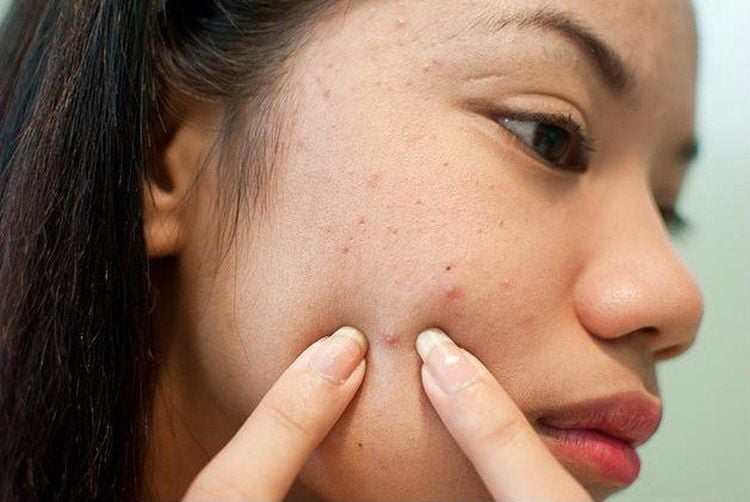
Khi bị mụn trứng cá tuyệt đối không được nặn mụn
All skin types can develop acne if we do not have the right skin care care. However, with oily skin types, care should be taken to avoid clogged pores that can easily cause acne. In some cases where skin care is not effective, you should go to a medical center for a dermatological examination to limit serious skin damage.
If there is a need for consultation and examination at the Hospitals of the National Health System, please book an appointment on the website to be served.
Please dial HOTLINE for more information or register for an appointment HERE. Download MyVinmec app to make appointments faster and to manage your bookings easily.
Reference source: healthline.com



